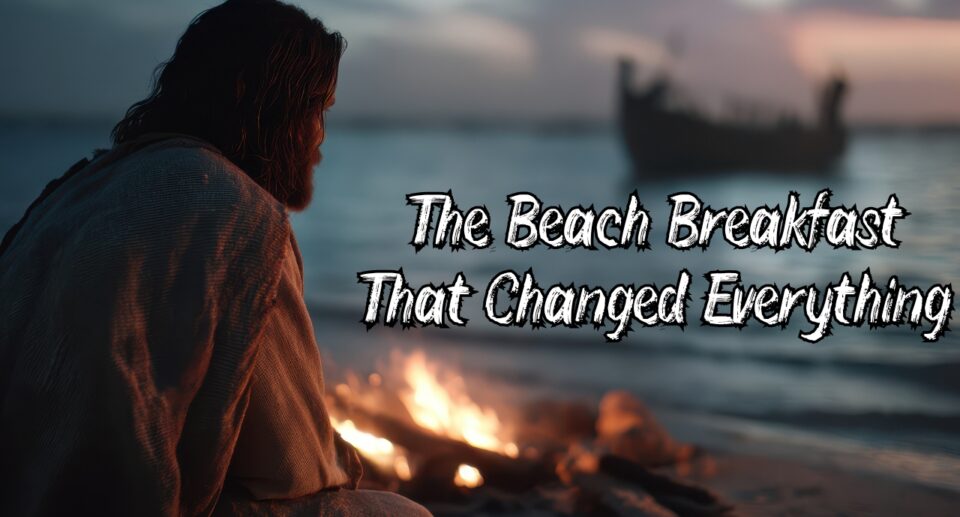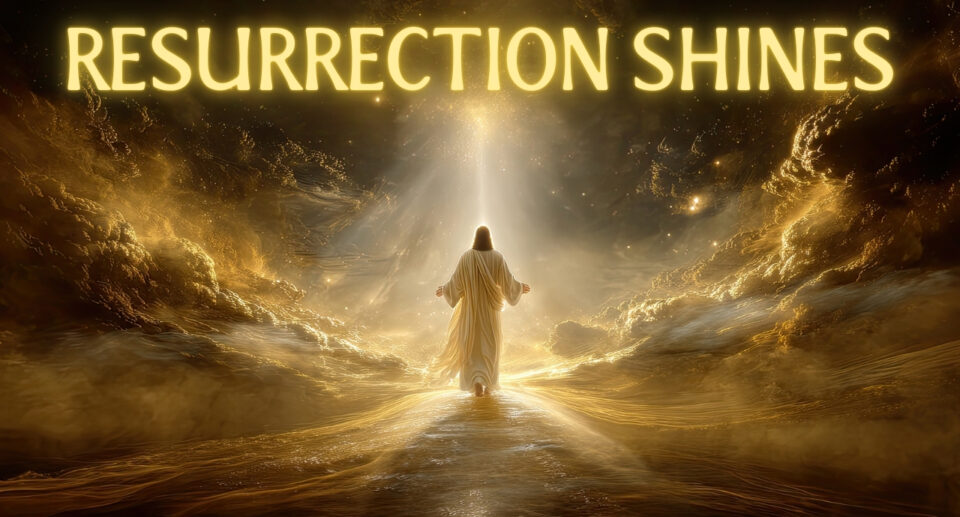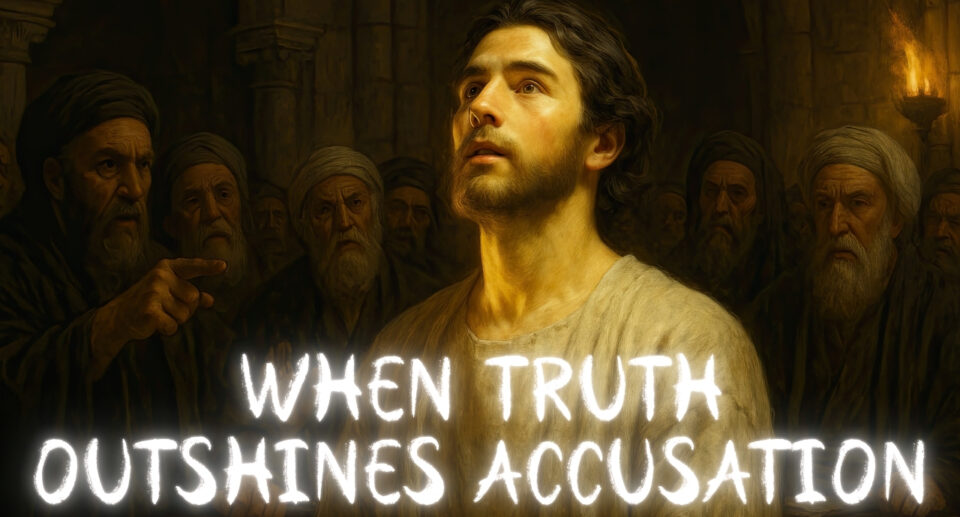The Fire of Restoration: How Jesus Transforms Failure | Daily Readings | May 4, 2025

May 4, 2025 – Daily Catholic Lectionary Readings for Third Sunday of Easter
Experience the powerful beachside encounter between the risen Jesus and Peter by a charcoal fire—the exact setting of Peter’s previous denial. Discover how Jesus transforms our greatest failures into the foundation for our most significant purpose.
This reflection reveals:
- The historical significance of the charcoal fire in Peter’s restoration story
- Why Jesus asks “Do you love me?” instead of demanding better performance
- How Peter transforms from denial to bold proclamation before the Sanhedrin
- The unexpected pattern of restoration throughout scripture
- Practical ways to allow your own failures to become fertile ground for new purpose
Readings covered: Acts 5:27-32, 40b-41; Revelation 5:11-14; Psalm 30:2, 4, 5-6, 11-12, 13; John 21:1-19
Perfect for anyone seeking healing from past mistakes, facing consequences of failure, struggling with shame, or needing courage to stand firm in challenging circumstances.
#ThirdSundayEaster #PeterRestoration #CharcoalFire #ResurrectionPower #FailureToFaith #DailyGospel #CatholicReading #BibleStudy #SpiritualGrowth #FindingPurpose #OvercomingShame #DivineMercy #NewBeginnings #FaithJourney #TransformationStory
The Fire of Restoration
Dawn breaks over the Sea of Galilee. The disciples’ nets hang empty after a night of fruitless fishing. Suddenly, a voice calls from shore – “Cast your net to the right!” The water churns as fish swarm the net. Then, recognition electrifies the air: “It is the Lord!”
Peter doesn’t hesitate. He plunges into the water, swimming frantically toward shore while the others follow in the boat. And there stands Jesus beside a charcoal fire, fish already cooking, bread in hand.
That detail – a charcoal fire – it’s no coincidence. In the entire New Testament, this specific Greek word appears only twice. Here, and in the courtyard where Peter denied Jesus three times.
Jesus intentionally recreates the scene of Peter’s greatest failure. Not to shame him, but to heal him where he was broken. This is divine brilliance at work.
What happens next defies our expectations. No lecture about loyalty. No reminder of failure. Instead, Jesus simply says, “Come, have breakfast.” Hospitality before the hard conversation.
After they’ve eaten, Jesus asks Peter three times, “Do you love me?” Three questions to heal three denials. With each affirmation, Jesus entrusts Peter with greater responsibility: “Feed my lambs… Tend my sheep… Feed my sheep.”
The man who failed most spectacularly becomes shepherd of the entire flock.
And we see the result of this restoration in our first reading. This same Peter – who once cowered before a servant girl – now stands boldly before the Sanhedrin, declaring: “We must obey God rather than any human authority.”
The high council is furious. They have Peter flogged – flesh torn by the whip – yet Luke tells us the apostles leave “rejoicing that they were considered worthy to suffer dishonor for the name.”
What creates such transformation? Not willpower or religious performance. Not guilt or shame. But an encounter with resurrection power that specializes in meeting us in our failures and creating new beginnings.
The historical context makes this even more remarkable. In first-century Jewish culture, a denial like Peter’s would typically end a rabbi-disciple relationship permanently. By seeking Peter out and reinstating him publicly before the others, Jesus dramatically overturns cultural expectations.
This breakfast by the sea becomes the pivot point between Easter and Pentecost. Between resurrection and the birth of the church. Between private faith and public witness.
The connection between our readings reveals a profound pattern: transformation comes through divine encounter, not human effort. In John’s gospel, Peter swims to Jesus. In Acts, Peter stands firm because the risen Christ stands with him. In Revelation, all creation worships the Lamb who was slain but now lives.
Our Psalm captures the journey perfectly: “You have turned my mourning into dancing; you have taken off my sackcloth and clothed me with joy.”
This is the extraordinary promise of resurrection – not just that Jesus conquered death, but that your purpose can rise from the grave of your greatest failures. Not through impressive spiritual performance, but through honest encounter with the One who still prepares breakfast by fires of restoration.
What failure in your own life needs this kind of transformation? Where have you been defining yourself by your worst moment? The same Jesus who sought Peter on that shore seeks you now, not with condemnation but with an invitation to breakfast, to conversation, to restoration.
The most remarkable aspect of this story isn’t Peter’s failure or even his courage in Acts. It’s that Jesus deliberately uses the very symbol of Peter’s failure – that charcoal fire – as the setting for his restoration. Nothing is wasted in God’s economy. Even our failures become the fertile ground from which new purpose grows.
This is good news for all of us who have failed, fallen short, or denied our deepest values in moments of pressure. The way forward isn’t avoiding the scene of our failure but allowing Jesus to meet us there with the breakfast of new beginnings.






